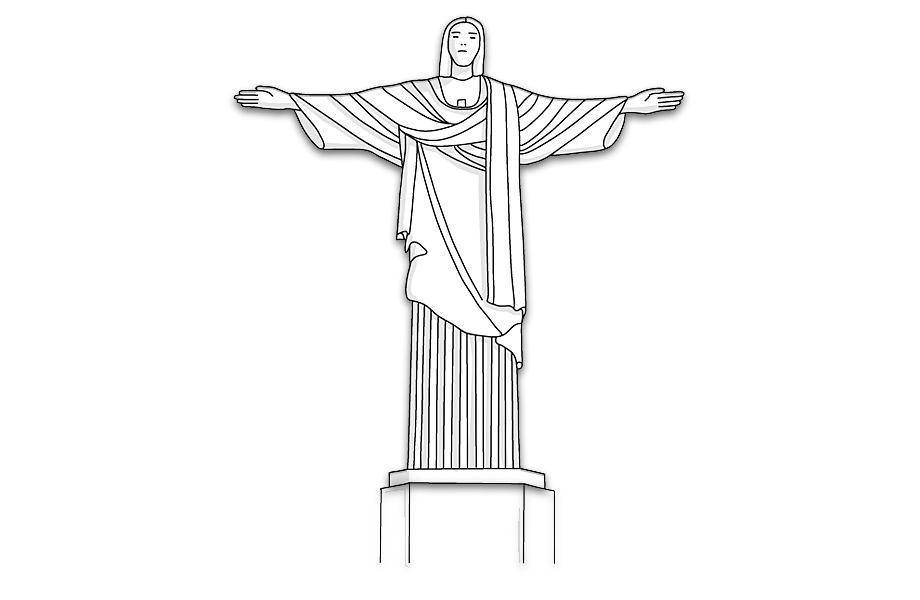776 BC
First recorded Games held at Olympia.

AD 393
Emperor Theodosius I prohibits the worship of pagan gods and disbands the Games.

1896 – Athens
First modern Olympics: 241 athletes from 14 countries compete in 43 events in nine sports. One sprinter wears a pair of white gloves because, he explains, he will be running in the presence of the king.

1912 – Stockholm
Automatic timing devices are introduced for the track events and, for the first time, competitors in the Games come from all five continents. The star of the Games is Jim Thorpe, a 24-year old Native American who won both the pentathlon and decathlon.

1924 – Paris
American swimmer Johnny Weissmuller triumphs with three gold medals and one bronze. Later discovered by Hollywood, he went on to become famous in the role of Tarzan. The Olympic motto Citius, Altius, Fortius (Faster, Higher, Stronger) is used for the first time.

1928 – Amsterdam
A symbolic fire is lit during the Games for the first time and women are allowed to compete in athletics and gymnastics. Australian rower Henry Pearce stops halfway through a race to let a family of ducks pass, but still manages to win.

1936 – Berlin
Introduction of the torch relay. African-American athlete Jesse Owens wins four gold medals, prompting Hitler to leave the stadium. Thousands of pigeons are released as a peace gesture, just three years before the outbreak of World War II.

1948 – London
The first post-WWII Olympics are held in a city with still-open wounds. The photo finish camera is used for the first time. The star of the Games is 30-year-old Fanny Blankers-Koen of the Netherlands, aka “The Flying Housewife,” who wins four gold medals.

1956 – Melbourne
The first Games outside Europe and North America are held in November/December, which is summer for Oceania, but winter for the rest of the world. The Soviet Union tops the medal table.

1960 – Rome
Summer Olympic Games are telecast in North America for the first time. Constantine, heir apparent to the Greek throne, wins a gold medal in sailing; bare-footed Ethiopian Abebe Bikila wins the Marathon; and the great Muhammad Ali (still Cassius Clay at the time) wins the light-heavyweight class.

1968 – Mexico
A high altitude and the new Tartan track surface contribute to an impressive 48 World and 190 Olympic records. American Dick Fosbury revolutionizes the high jump event with his then unconventional “Fosbury flop.” technique.

1972 – Munich
The Games are overshadowed by the deadly terrorist attack known as the Munich Massacre. US swimmer Mark Spitz wins seven gold medals. In the controversial basketball final, the Soviet Union beats the US, but the Americans refuse their silver medals.

1976 – Montreal
Nadia Comaneci reigns supreme. The 14-year-old gymnast from Romania wins three gold medals, plus one silver and a bronze, and is awarded – for the first time ever – a perfect score of 10.

1984 – Los Angeles
The Games are marred by political conflict: Eastern Bloc countries refuse to participate in retaliation for the American boycott of the Moscow Olympics four years earlier.

1988 – Seoul
Over 10,000 accredited media outlets cover the Games, which bring 30 world and 117 Olympic records, but also several high profile doping scandals.

1992 – Barcelona
The US men’s basketball “Dream Team” leaves its stamp on the Games after the event becomes open to professionals. The team has no trouble taking gold while raising the sport’s international profile to unprecedented levels.

2004 – Athens
The Olympic Games return home. The opening and closing ceremonies held at ancient Olympia, along with the shot put event, touch the world.

2008 – Beijing
The most expensive Summer Games ever held, with the total cost spiralling to $44 billion. American swimmer Michael Phelps is awarded eight gold medals, seven for new world records. This is the biggest number of medals ever to have been won by an Olympic athlete.

2012 – London
In the first city to host the Games for a third time, organizers receive some 240,000 volunteer applications. Team GB finishes third with 65 medals – their best haul since London first hosted the Olympics in 1908.

2016 – Rio
10,500 athletes from 206 countries are competing in Brazil, the first South American country to host the Olympics. Ιt will be winter in Brazil when the Games take place, with conditions similar to springtime in the Northern Hemisphere.












